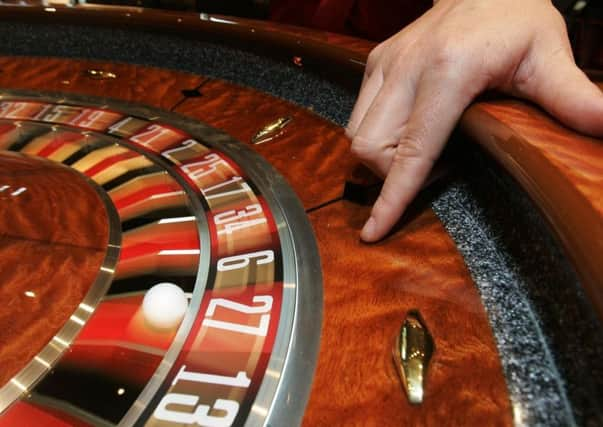North's first NHS clinic for 'problem gamblers' to be launched in Leeds


The plans follow research by Leeds Beckett University, commissioned by Leeds Council, which found that more than 10,000 people in the city could be addicted, and a further 30,000 people could also be at risk of harm from gambling. Across the UK, there are thought to be 400,000 problem gamblers.
A major consultation on the wider issue was launched by Ministers last year, with the aim of achieving “a healthy gambling industry that responsibly generates investment and employment”.
Advertisement
Hide AdAdvertisement
Hide AdPublic health organisations are now in advanced talks with GambleAware, a charity which works to minimise gambling-related harm, on a clinic located in Leeds.


A regional gambling ‘masterclass’ is also being held in Leeds tomorrow, with representatives of 15 Yorkshire councils and a variety of talks by experts in the field.
Dr Ian Cameron, Director of Public Health at Leeds City Council, said: “Gambling is often a hidden addiction with serious financial problems and a massive impact on someone’s health, wellbeing and relationships.
“Leeds City Council is aware that Leeds & York Partnership Foundation NHS Trust has put a proposal to GambleAware to fund a specialist treatment service for those with gambling problems.
Advertisement
Hide AdAdvertisement
Hide Ad“The intention is for this service to be offered to the north of England. The council would support a treatment service funded by the gambling industry that is sustainable and responsive to the growing needs of problem gamblers in Leeds.”


Speaking of tomorrow’s conference, he said it was “an excellent opportunity to share knowledge and good practice so we can make informed decisions and reduce the negative impact of gambling”.
Among the expert speakers at the event, organised by Public Health England (PHE) and the Association of Directors of Public Health, is Dr Henrietta Bowden-Jones, founder and director of the National Problem Gambling Clinic, the first and only NHS treatment centre in the UK for the treatment of problem gamblers.
She said: “Gambling disorder...remains a destructive serious illness that affects almost half a million people in this country with many more showing signs of being at risk of developing the addiction.
Advertisement
Hide AdAdvertisement
Hide Ad“It is important to continue the drive towards improving accessibility to services, maintaining high quality service delivery and developing new and better preventative measures to protect the vulnerable and to safeguard this country’s young people.”
A report commissioned by the Department of Culture, Media and Sport stressed there was high level support for regional “clinics” connected to an existing network of treatment services.
The report welcomed “in particular, the initiative currently under development with Leeds City Council to establish a Northern NHS Gambling Clinic that would provide treatment to cities across the region”.
Dr Alexandra Kenyon of Leeds Beckett University, who led the initial research, said: “Not long ago, people didn’t talk about alcohol addiction or domestic violence. There are established networks to help those with an alcohol addiction or suffering from domestic violence. A co-ordinated approach across support services is now needed to further provide advice and support for gamblers with problems.
Advertisement
Hide AdAdvertisement
Hide Ad“Problem gambling is still not talked about openly, and that needs to change. Since our research was published, Leeds City Council has done some great work in this area, working with the gambling industry to set up a Beat the Odds campaign that includes outdoor posters, YouTube videos and social media posts aimed at raising awareness of problem gambling in Leeds and encouraging people to be more open about their gambling problems.”
A spokesperson fro GambleAware said: “With over 400,000 problem gamblers in Britain, GambleAware is concerned that gambling-related harm ought to be regarded by national and regional policymakers as a significant public health issue, and that the NHS ought to be providing access to treatment when and wherever necessary, free at the point of delivery.
“Currently, the only specialised clinic for problem gambling is funded by GambleAware, based in London. In the meantime, GambleAware is commissioning new research to better understand what treatments are most effective and where the demand for services are most needed.”